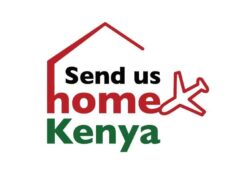UPDATES TO KAFALA
The definitive place to get the latest updates on Kafala.
Qatar’s programme of labour reforms today succeeded in dismantling the kafala system and heralding a modern industrial relations system.
In collaboration with Migrant Rights, a non-profit organisation which advocates for the rights of migrant workers in the Gulf, and This is Lebanon, a coalition of former migrant workers and activists working to advance the protection of migrant domestic workers in Lebanon, Send Us Home Kenya is organising a webinar to enhance Kenyan stakeholders’ knowledge on kafala, a system that governs the employment of foreign workers in various countries in the Middle East.
Maya Gavin, who grew up in Lebanon, reflects on the country’s tough history as a colonial project, and calls for greater understanding of how a neoliberal agenda is harming the people on the ground.
The unfortunate twin blasts in the port of Beirut on the 4th of August have left economic aftermath worse than the destruction caused by the blast. The Lebanon economy crisis has deepened. The sector vastly affected by this tragedy are the migrant workers, leaving thousands without a job and no clear route back home.
Lack of sustainable employment and safe shelter has exposed even more people to trafficking or abuse by their employers.
In conversation with the editor-in-chief of The Public Source
Political corruption in Lebanon traces its roots to the re-assembling in the post-civil war era, which entrenched a realm of politics dominated by war lords and militia-like mentalities operating through a sectarian discourse.
With low-level workers throughout fashion’s global supply chain facing the sharp end of the crisis, consumers will increasingly expect companies to offer them more dignity, security and justice.
Are Lebanon migrant workers treated like slaves? Workers are badly affected due to the economic collapse, and are exploited due to the 'Kafala system'. 250,000 workers in Lebanon not covered by labour laws. @AlysonLe brings the report.
UNITED NATIONS: A new report estimates that 29 million women and girls are victims of modern slavery, exploited by practices including forced labor, forced marriage, debt-bondage and domestic servitude.











